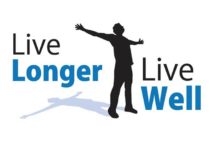
It is quite common to forget about our bones and their health. A lot of information is available on how to take care of heart, brain and all other body organs while there is not much written about how to take care of bones. Bones hold all the organs together and play an important role in protecting the organs and regulating blood chemistry. As you age, your bones get weaker and become more vulnerable to damage. With every coming birthday, you are left with weaker and fragile bones.
Dr. Mehmet Oz discusses effective ways to ensure that you have healthier and strong bones as you age.
1. Exercise to Strengthen Your Bones: Exercise has various health benefits. Regular exercise can help manage lots of diseases such as obesity, diabetes and heart diseases. Certain weight-bearing activities decide how strong and thick bones should be. If we keep lying down all day, our bones will interpret that they need not be strong and thick since you are not indulging in any weight-bearing activities. Your bones would eventually start losing their density and mass, leaving them weak and a bit fragile. Exercises like running, walking, and weightlifting send signal to bones to remain thick and strong enough to be able to perform these activities. While you are young, you can easily reserve strong and thick bones for future by indulging in these exercises. If you are older enough, you can maintain bone thickness and strength while preventing fractures. Dr. Oz recommends that earlier you start is better for your bone health.
2. Be Regular with Vitamin D and Calcium: As a woman reach menopause, bone health tends to weaken. This is contributed by reduction in estrogen level. Estrogen is a sex hormone that affects all the organs of a woman. When estrogen level drops, it becomes increasingly difficult for bones to hold on to calcium and remain healthier. Vitamin D and calcium help to reduce this decline in bone health. They have their own mechanism of maintaining bone health and ensuring strong and thick bones. Having normal levels of Vitamin D and calcium help in maintaining bone health even if estrogen is very low.

Sources of Calcium:
- It is quite easy to keep your calcium and vitamin D levels normal. Let’s discuss the sources vitamin D sources:
- Dairy products such as milk, yogurt, and cheese.
- Fishes with edible bones such as salmon or sardines.
- Soybean, tofu, and soymilks.
- Orange juice or oatmeal fortified with enough calcium.
- Turnip greens or broccoli.
You must be aware that consuming a diet rich in protein or salt, will make your kidneys eliminate the calcium, eventually dropping its level. While if you are lactose intolerant, you can consider having non-dairy products of calcium.

Sources of Vitamin D:
- Liver, egg yolks or saltwater fish
- Fortified milk
- Lean meats
- Fatty fish (salmon)
- Nuts
You can also have vitamin D and calcium supplements to have an adequate amount of these essential vitamins and minerals in your body. Dr. Oz recommends having your calcium and vitamin D tested before you start taking any of these supplements. If you are a woman and have gone through menopause, you must also consult a doctor before beginning to take any supplements.
3. Quit Smoking for Bone Health: Smoking has myriad of harmful effects over almost all the body’s organs and bones are no exception. People who smoke are estimated to have around 5 to 10% less overall bone mass than the non-smokers. This can ultimately lead to development of osteoporosis. All this means that smokers will have less bone density and fragile bones. You will then have to spend more time in bed to recover from fractures while spending too much time in hospitals. Smoking might also lead to more bone complications. You must consider quitting smoking as it can also harm your bones like it can cause a plethora of health conditions including bronchitis and even cancer.
4. Medications Can Help: At times, bone loss is much more than what can be reversed with exercise and lifestyle modifications. In this case, you are at a greater risk of having fractures. You must visit your doctor to have a proper diagnosis of your condition and knowing the risk of developing fractures. You might then be sent for a DEXA scan, to know how dense your bones are. You will be placed under a category according to which your doctor will be aware of your bone fracture risk. If you are at a high risk of bone fracture or osteoporosis, you will be prescribed a class of medications known as bisphosphonates. This medicine is effective in slowing bone loss and also reduces risk of fractures. Bisphosphonates block the cells which primarily are responsible for bone loss and thereby preserve bone density. You can still have a fracture even when you are on these medications, but the risk is however significantly reduced.
It is common for people to ignore their bone health but taking care of bones in youth can help them stay stronger and thick later in life. After all, bones are your body’s scaffold and very important for our daily movement.










